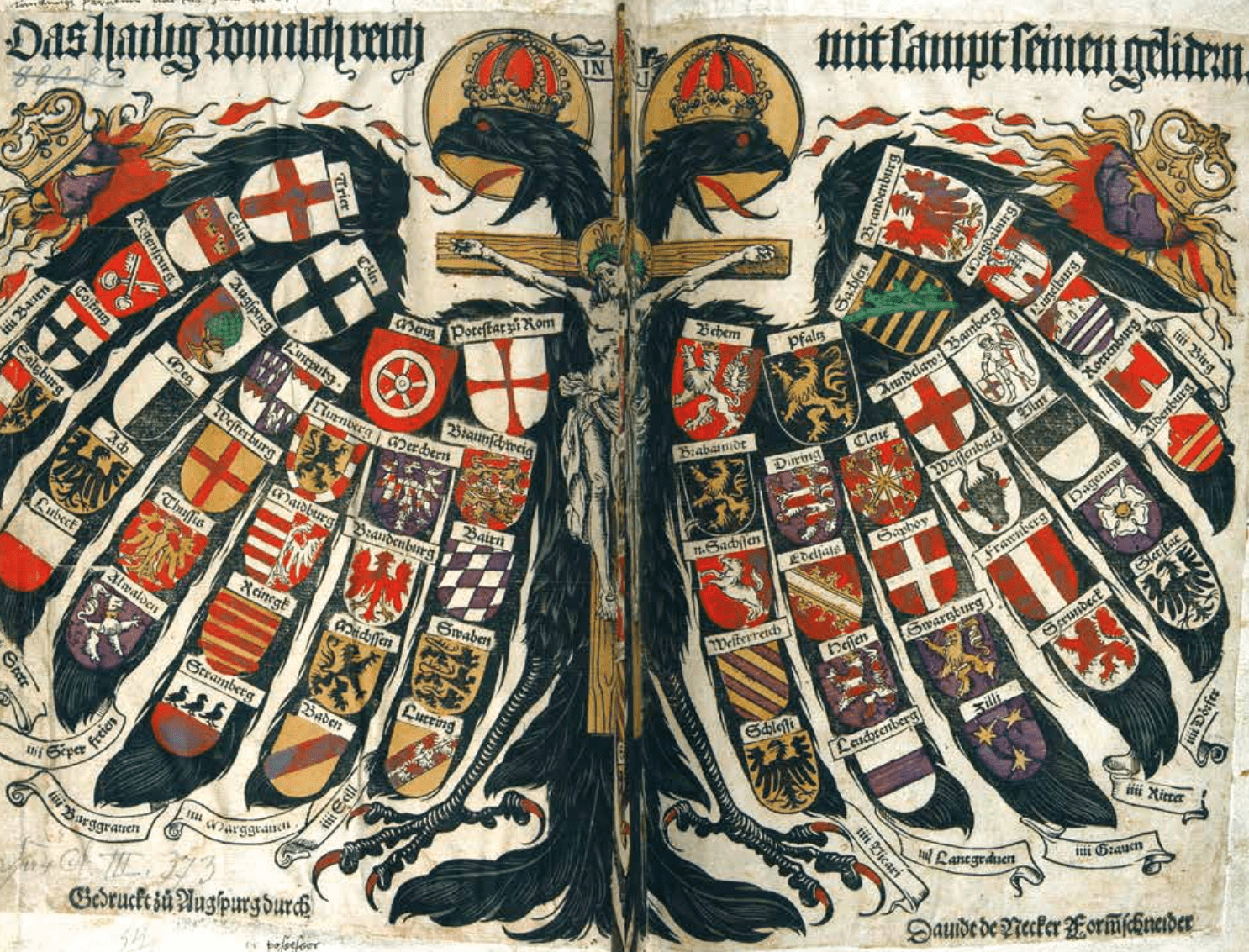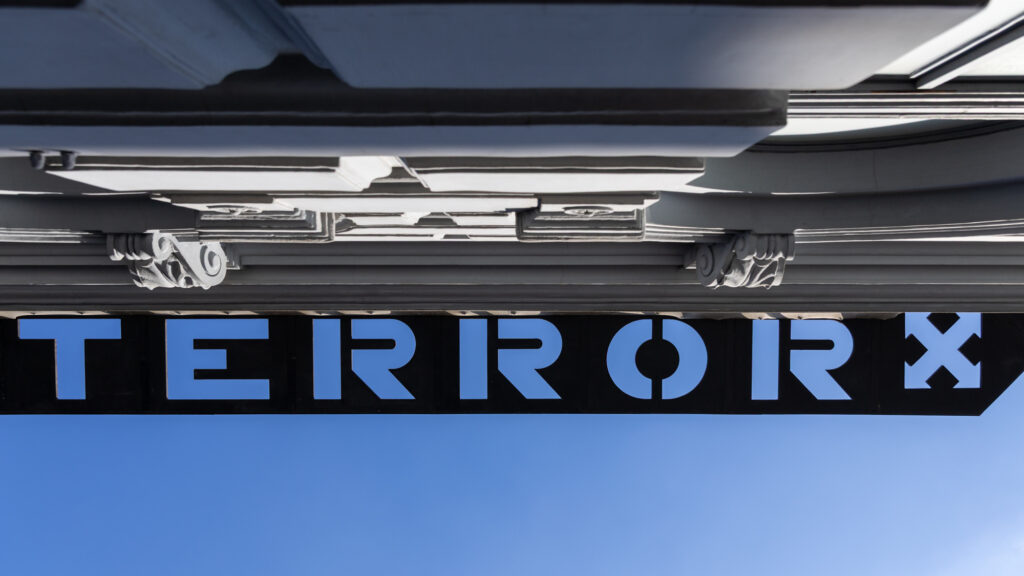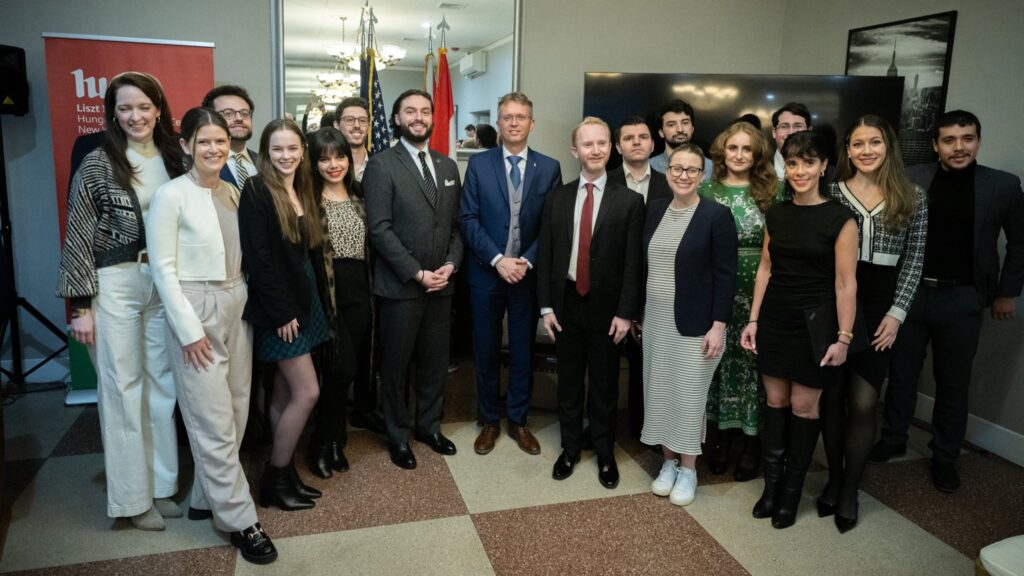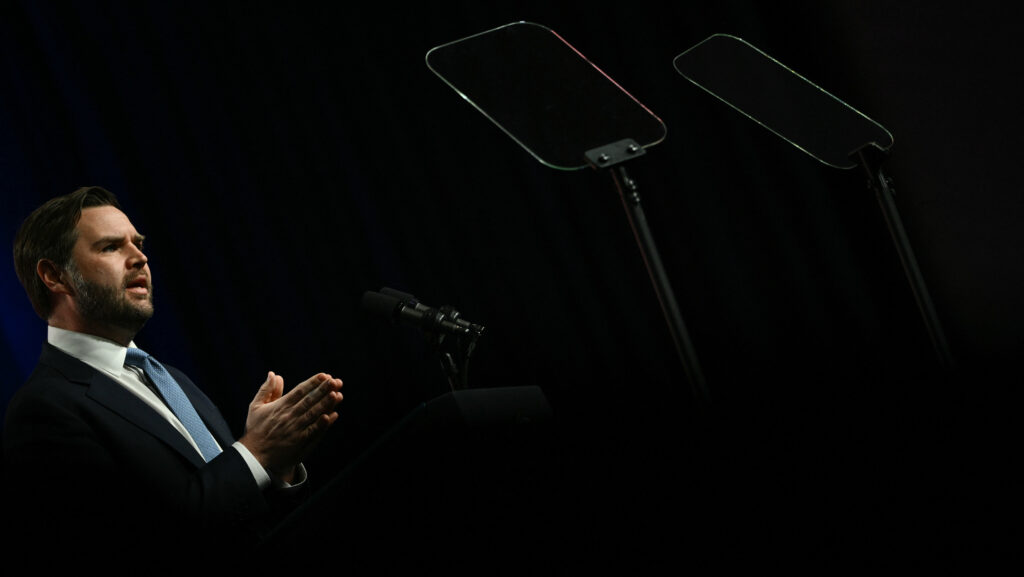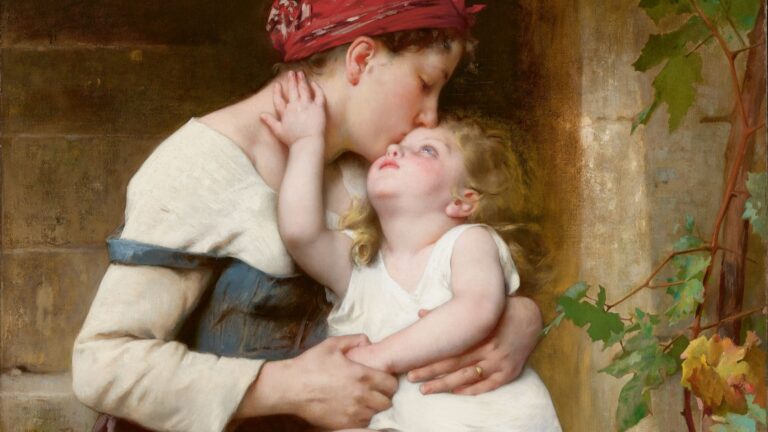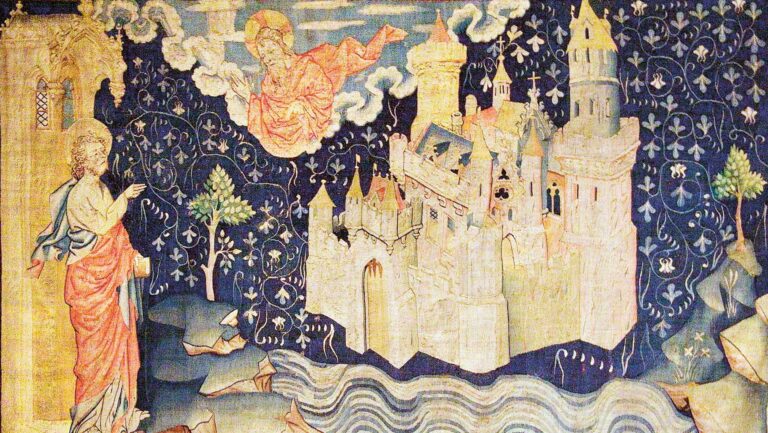Introduction: the Nineteenth Century and the Question of Europe
Jan Patočka’s Heretical Essays in the Philosophy of History are heretical because, for him, ‘history is foremost a history of the soul’.1 This is the basic concept that Patočka, a dissident Czech philosopher who signed Charter 77 and died on 13 March 1977 from trauma sustained during a police interrogation, set against the materialistic theories of history that dominated European thought in the twentieth century. It is therefore not surprising that Patočka writes in the Heretical Essays, which were put into circulation by the samizdat printing-house Edice Petlice in 1975, that ‘the care for the soul is […] what gave rise to Europe’.2 Whatever that may mean, it is Patočka’s thesis in his essay on ‘Europe and the European Heritage until the End of the Nineteenth Century’.3
Now, Patočka is writing in the late twentieth century. We can therefore begin by asking what significance the nineteenth century might have for him. In the first place, Patočka suggests that ‘the twentieth century […] is something like the “truth” of the nineteenth’. He seems to think that forces and configurations which remain latent in the nineteenth century become dominant in the twentieth.4 Because of this, his description of the nineteenth century is structured by his understanding of the twentieth. In fact, he tells us that he will ‘describe [the] Europe of the nineteenth century as a battlefield […] overshadowed by the future’.5 It is of course suggestive that Patočka calls both the nineteenth and twentieth centuries, in Europe, a battlefield. As we will see, war structures his philosophy of European history.
In the second place, Patočka’s theme is Europe, and we have already seen that ‘care for the soul is […] what gave rise to Europe’.6 This care for the soul is deeply rooted in Christianity, yet Patočka holds that the original political heritage of Europe is ‘nothing other than the spiritual heritage of the Roman Empire’.7 In other words, Patočka sees Europe as an heir of the Roman Empire. Because of this, we should ask: in what century did the political legacy of the Roman Empire come to an end? This is a complicated question— and the present essay will touch on many complicated questions. But for the moment, we can say that this occurred in the nineteenth century—namely, with the abdication of the last of the Holy Roman Emperors, Franz II, in 1806. It is only when Franz vacates his Romanthrone that the Holy Roman Empire, as it had been called since the thirteenth century, ceased to exist. The imperial structure, or ghost of a structure which had symbolically, and, in certain meaningful ways, legally and territorially tied modern European politics to the Roman politics of late antiquity—that imperial structure only dissolved in the first years of the nineteenth century.
Patočka sees Europe as an heir of the Roman Empire
It is not entirely clear what meaning that dissolution has in Patočka’s thinking, but in some of his writings he refers to a ‘Europe after Europe’.8 This is a many-faceted notion, but Patočka writes in the Heretical Essays that the world wars ‘bring on the definitive collapse of Europe’.9 The collapse of Europe is a twentieth-century reality, the effects of which are still being felt—and may only still be beginning to be felt—in the present century. Yet there may also be a sense in which Europe ends in the nineteenth century, for Patočka. The reality of Europe’s collapse may remain latent in the nineteenth century (like Friedrich Nietzsche’s death-of-God), signalled only by now-obscure events such as the abdication of Franz II; but it then seems to become dominant in the twentieth century, which Patočka calls ‘an epoch of the night, of war, and of death’.10
Patočka’s reflection on the European heritage, in the Heretical Essays, may only take us to the end of the nineteenth century because he senses that European heritage itself is disrupted in the nineteenth century. What we call Europe is a Europe after Europe. It may even be that what the architects of the ‘monumental auto-da-fé’ of 1914—a war which drove ‘millions of humans into a fiery furnace’—called Europe may already have been a Europe after Europe.11
But that brings us to the question: What is Europe? A question which returns us to Patočka’s thesis—namely, that ‘care for the soul […] gave rise to Europe’.12 What is this care of the soul without which there never would have been a Europe?

The Spiritual Origins of European Unity
Patočka senses that twentieth-century wars brought on the collapse of Europe; and similarly, he opens his fourth Heretical Essay by referencing an era of devastating conflicts which helped to forge Europe’s political unity—the Crusades. Patočka’s source for this—perhaps, to us, shocking—idea is G. W. F. Hegel in an early, unpublished fragment on the German constitution.13 Patočka points out that Hegel produced this text ‘on the verge of the final collapse of the Holy Roman Empire’.14 The timing is significant. For, later in the same Essay, Patočka describes nineteenth-century ‘German soil’ as ‘the soil of the disintegrating Roman Empire’.15 It is evidently with this continent-shaping process in mind that Patočka quotes Hegel, who wrote in 1803—a decade after the beheading of Louis XVI, in January 1793—that late-medieval Europe ‘was not only a holy Christian community, nor just a coalition harmonizing interests for its own sake, but was a secular power, a state […], a homeland of both temporal and eternal life, in a war with the East’.
If Europe collapses in a sequence of nineteenth and twentieth-century wars against itself—and it is fascinating that Patočka hints, in the Heretical Essays, at dark symmetries between the Napoleonic Wars and the World Wars—then, in this Hegelian picture, it first rises as a continent-wide ‘secular power’ waging a war against the East. We return, then, to the question: What is Patočka’s Europe? One reply is that it is a system of nations and territories ‘united once by the Crusades’.16 Having established this, we can modify Patočka’s more nebulous thesis. If it is ‘care for the soul’ which ‘gave rise to Europe’, it is also the Crusades which gave rise to Europe.17 But this raises a new question: What links a pre-Christian, pre-European tradition of care for the soul to a Christian, European history of crusading? Patočka only offers a few brief indications.
‘Care for the soul’, he writes, ‘is the bequest of ancient Greek philosophy.’ And what is the nature of that bequest? ‘Care for the soul means that truth is something not given once and for all […] but rather a lifelong inquiry, a self-controlling, self-unifying intellectual and vital practice.’ Care for the soul is both an imperative to question, then, and a practice of questioning.18 It might seem that this imperative, and this practice, could only perversely or tenuously be tied to vast, sanguinary movements such as Christian crusading. On a moment’s reflection, however, we see that ancient Greek care for the soul was never a stranger to war.
Consider that Socrates seems to have been known as a tough Athenian soldier. Aristotle’s protégé, Alexander of Macedon, led the incomparable crusade that shaped the Hellenistic (or post-Hellenistic) world-order in which Jesus of Nazareth and Paul of Tarsus lived. And even the ethereal Egyptian neoplatonist, Plotinus, travelled to Persia with a force led by the Roman Emperor Gordian III, in 243 CE. These are not points that Patočka makes, but it is worth noting that pre-Christian care for the soul has its own complex, centuries-long history of war with the East.
It is nevertheless through the Roman Empire that Europe inherits a Greek care for the soul, and Patočka briefly describes the Romans’ transformation of that form of care. ‘In the Roman Empire’, he says, ‘the care of the soul assumes the form of striving for a rule of law throughout the global community affected by the Empire, for the most part directly, for the rest at least by its demands and its influence.’19 In other words, what Rome contributes to the tradition is a desire for legal universality—with one caveat, however. Roman legal universality is not prophetic in nature, as will later be the case with Islam.20 The universality of Roman law is theoretically rooted in ‘natural law’, a Greek philosophical concept with important echoes in the New Testament and early Christian literature.21
To repeat: Patočka’s Europe is heir to a Greek care of the soul, and its modulations in the Roman Empire, by way of Latin Christianity. According to Patočka, these transformations do not destroy the tradition. ‘We can say’, he says, ‘that the European heritage remains the same in the various forms in which the care for the soul is transformed’: in the Greek life of intellectual enquiry; in the Roman desire for legal universality; and in the Latin Christian—what? What is the Christian modulation of care for the soul, without which, there would be no Europe
Like the Greek democratic cities and the Roman oecumene, Patočka sees in Christian tradition ‘the striving for a community of a perceived truth and justice’
Patočka writes this: ‘The Western Christian “holy empire” […] gives rise to a much broader human community than the Roman- Mediterranean had been, while at the same time disciplining inner humanity and giving it greater depth.’22 Like the Greek democratic cities and the Roman oecumene, Patočka sees in Christian tradition ‘the striving for a community of a perceived truth and justice’. But Patočka’s stress does not fall on, say, the manifold influences of Greco-Roman natural- law theory on Christian philosophy and political culture. Rather, he writes that Christians aspire to ‘a city based directly on a truth which is not of this but of the other world and whose norms and primordial model are set not by human but by divine power’.23 It is not hard to see how historically contingent modulations of a Greco-Roman care for the soul (which Patočka later calls a ‘care for the salvation of the soul’) could be made to inform a Crusade theology,24 within a continent-wide polity which is held to rest on divine truths—and thus, could give rise to a Europe that was not only, in the young Hegel’s words, ‘a holy Christian community [but] a secular power’.25
Patočka’s thesis in the fourth Heretical Essay, however, is not only that a Christian culture of care for the soul unified Europe. He believes that a rupture of that Christian culture, and a new form of culture which ‘oppos[es] the motif of care of the soul’, shatters the medieval unity of Europe and leads to the catastrophes of the nineteenth and twentieth centuries. If ‘Hegel and other Europeans of his age do not for a moment doubt the spiritual origins of […] European unity’, and if—as Patočka believes—‘their conception is surely correct’, he also believes that the origins of European disunity are spiritual.26 And that brings us to the spiritual origins of European disunity.
The Spiritual Origins of European Disunity
‘The great turning point in the life of Western Europe appears to be the sixteenth century’ for Patočka. ‘From that time on, another motif comes to the fore, opposing the motif of care for the soul.’ The care for the soul is, he clarifies, a ‘care to be’, whereas modern Europeans’ ‘dominant concern’ seems to be ‘the care to have, care for the external world and its conquest’. Now, Patočka knows what Augustine of Hippo in the fifth century, and Oskar Becker in the twentieth called libido dominandi—the will to power, or lust to conquer—he knows that this is rooted deep within us.27 Patočka reflects on the archaic practice of slavery in his first Heretical Essay,28 and he is of course not suggesting that such practices originate in the sixteenth century of our era. What then is he saying occurred in the sixteenth century?
We have already heard Patočka credit Christianity with ‘disciplining inner humanity’. He states that ‘Christian motifs of life […] had originally constrained this care- to-have, [this] will-to-rule’. The Christian constraints he alludes to had what he calls ‘greater depth’ than those in Greco-Roman philosophy; but the need for such constraints is primordial. What is novel in sixteenth-century Europe is not the salience of libido dominandi, or lust to conquer. Rather, what is novel is a programmatic challenge to the inherited constraints on that lust.
What Patočka senses in early modern Europe is not merely the appearance of a new modulation of the Platonic–Christian ‘care’ which links Europe to imperial Rome, and Rome to the democratic cities of ancient Greece. Rather, he identifies ‘a new life’, tout court, in sixteenth-century Europe—one that is ‘pernicious to the older principle’. And what, we should ask, gives rise to this new form of life, much as the Crusades gave rise to Europe (on Patočka’s telling, citing Hegel)?
‘Unquestionably’, Patočka writes, it is ‘the expansion of Europe’ in the late fifteenth and the sixteenth centuries which ‘contained within itself the seed of a new life pernicious to the older principle’.29 If Patočka’s Europe is forged in a war to recover the Christian East from Islam, it begins to falter in what he calls ‘the westward suppression of Islam’—meaning, the reconquest of the Iberian peninsula, and the European clashes with Muslims on the shores of northwest Africa—because this led to the ‘discoveries beyond the seas and to a sudden wild scramble for the riches of the world, especially of the New World, left at the mercies of Europe’s ingenious military organization, weapons, and skills.’30 He elaborates:
‘Only in conjunction with this expansion of Europe to the West does the essential reformation of the orientation of Christian practice, turning from the sacred to the secular, acquire […] political significance […]. In less than a century, [Francis] Bacon will formulate a wholly new idea of knowledge […] profoundly different from that which motivated care and concern for the soul: knowledge is power [and] knowledge is to lead us back to paradise, the paradise of inventions and possibilities of transforming and mastering the world to suit our needs while those needs remain undefined and unlimited […]. From that time on, the expanding Western Europe lacks any universal bond, any universal idea which could be embodied in a concrete and effective bonding institution and authority: the primacy of having, over being, excludes unity and universality, while the attempts to replace them with power prove vain.’31
A sequence of formidably complex changes is adumbrated in these sentences. First, it is in the early modern period that ‘Christian practice’ comes to concern itself more with the secular than the sacred. This change is doubtless tied to the Protestant revolutions; one thinks of Max Weber’s seminal book, The Protestant Ethic and the Spirit of Capitalism (published in 1920 as a collection of articles that appeared in 1904 and 1905). The secularization of Christian practice is then reflected in a ‘wholly new idea of knowledge’ which is advanced by an English Protestant, Francis Bacon, who declares exactly that intent in the title of his book, New Organon. Bacon means to replace the old, Aristotelian Organon on which European philosophy had drawn for many centuries.
And what are the contrasts at which Patočka hints in his lines on Francis Bacon? In the Greco-Roman and Christian traditions of ‘care and concern for the soul’, knowledge is held to culminate in contemplation—a quiet, light-filled apprehension of God or the Good. In the wake of Bacon’s intervention, knowledge begins to revolve around the observation of bodies, which are to be controlled by human needs—‘while those needs remain undefined and unlimited’. This last comment by Patočka is crucial. For it is a commonplace in premodern philosophy that human desire is infinite. Imposing limits on human desire is a theme in many Greco-Roman philosophical texts—and indeed, many of Jesus’s sayings in the gospels.32 Patočka is repelled by Bacon’s vision. A ‘paradise of inventions’ in which human needs ‘remain undefined’ is like Bosch’s Garden of Earthly Delights—it tilts into darkness and confusion.
Patočka is concerned, too, that as the medieval Christian care for the soul—with its practices of contemplation, and its exaltation of Being—sustained a ‘distinctive formation that called itself the Holy Roman Empire’, and that ‘constituted something midway between public and international law’, so, too, the modern European form of care—with its rituals of material acquisition, and its exaltation of Having—gave rise to a European system which ‘excludes unity and universality’. When he writes that ‘attempts to replace’ the European unity of the Holy Roman Empire ‘with power prove vain’, he is evoking, not only the Napoleonic Wars in the nineteenth century (more on which in a moment), but the incalculably destructive World Wars in the twentieth.
the modern European form of care—with its rituals of material acquisition, and its exaltation of Having—gave rise to a European system which ‘excludes unity and universality’
The rise of political and spiritual disunity in early modern Europe coincides with what Patočka calls the desire to ‘project […] the division of Europe upon a division of the world’— in a word, colonialism.33 It is therefore not surprising that in the same centuries—roughly, from the sixteenth to the nineteenth centuries— ‘both of Europe’s heirs’ begin to forge their own, new political unities.34 It is in the nineteenth century, we could perhaps say, that Europe’s division of the world begins to divide up Europe. And who are Europe’s heirs? For Patočka (and most other mid-twentieth-century intellectuals), they are Russia and the United States. On both of which, a few comments.
‘From the sixteenth century on’, writes Patočka, ‘Russian Muscovy assumed the Byzantine heritage of eastern Christianity […] replac[ing] Europe’s vague eastern border with a mighty power.’35 If the ‘spiritual heritage’ of the city of Rome is that of Europe, then the spiritual heritage of Constantinople—captured by the Turks in 1453—is that of Russia.36 And Patočka is right to suggest that throughout the history of modern Europe, Russia is the most ‘conservative’ of the European powers,37 right up to its ‘collapse’ in 1917.38‘Fundamentally’, he writes, ‘Russian thought [before 1917] is in agreement to the European heritage’; and yet, as the heir to ‘Byzantine imperial Christianity’, Russia ‘develops ever more clearly its own political heritage’.39 That heritage may conceivably be more conservative than continental Europe’s because its sense of loss is deeper. Russia’s Rome—Constantinople, the ‘New Rome’—is lost.
If Russia, before the Bolshevik Revolution, is Europe’s more conservative heir and rival, the United States is Europe’s more progressive heir and rival. For the ‘organization of the North American continent’, on Patočka’s telling, is basically a reflection of ‘Protestant radicalism’.40 He writes:
‘When the vast power of New England begins to take shape and with it the dawn of a new human order, free of subordination, exploitation, and abuse of humans by each other, a tremor of hope passes through not only the New World but through all of Europe […]. The idea of a revolution, of a radical transformation of human affairs, the possibility of a life free of hierarchy, in equality and freedom, growing probably out of the reality of New England and the successful revolt of the British colonies, is at the root of the revolutionary posture as the fundamental characteristic of modern times […]. France accepts it from these hands and, in its own revolution, lends it in part already an overtly social character, indicating that nothing will be spared in the upheaval.’41
It is the American Revolution, for Patočka— not the French—which initiates a long nineteenth century of revolution in Europe, from 1792 to 1917. And Napoleon himself is a revolutionary figure, if not the revolutionary figure, for Patočka. ‘The Napoleonic revolutionary wars’, he writes, ‘striv[e] to actualize, on a new secular and rational basis, the universal meaning of [revolutionary] France as the European center which now extinguishes the last illusory vestige of the Roman Empire.’ This sentence returns us to the year 1806 and the abdication of the last of the Holy Roman Emperors. Patočka’ssuggestion is that Napoleon seeks to impose a revolutionary, national structure on the whole of Europe, in place of an immemorial, imperial structure that bore within itself deep ties to the ‘spiritual heritage of the Roman Empire’.42 Napoleon is not the anti-Christ (as hinted in Leo Tolstoy’s War and Peace), but he is an anti- Charlemagne—and thus, in Patočka’s political imaginary, the defining anti-European of the nineteenth century.
And what comes in Napoleon’s wake? Patočka intriguingly suggests that mid-nineteenth-century Europe can be seen in light of mid-twentieth-century Europe. On his telling, there is a sort of Cold War avant la lettre in nineteenth-century Europe. Or so he seems to suggest when he writes this:
‘Russia took a stance deep in Europe [after the Napoleonic Wars] as a dam against the first Americanization, as we could call the revolutionary and post-revolutionary Europe. Both of Europe’s heirs [therefore] collided for the first time on European soil in the second decade of the nineteenth century, not yet as political antagonists, but as principles.’ 43
Russia and the United States are ‘new powers that grew out of Europe’—a Europe that had progressively abandoned its Platonic–Christian traditions—and that ‘rendered its future problematic’.44 But what are they as principles, in Patočka’s nineteenth century? What is the spiritual conflict between Russia and the United States in the post-Napoleonic era?
In the long nineteenth century, Russian influence led to what Patočka calls ‘a discredited legitimacy’ in Europe, a period of restoration that was ‘no longer credible to anyone’.45 American influence can be observed, on the contrary, in a ‘social drive to equality and rational organization’.46 It may seem surprising that it is the American influence, more than the Russian, which subverts what Patočka calls ‘the old European principle of the care for the soul’.47 What, we might ask, is Patočka’s objection to the American drive to equality and rational organization?
In the second Heretical Essay, Patočka praises a ‘new human possibility’ opened by the ancient Greek democracies. He writes that they were ‘based on [a] mutual recognition of humans as free and equal’.48 In the third Essay, he stresses that the church is ‘a new community […] in which, for all its hierarchy, all humans are equal before the face of the ultimate “true” reality’.49 Much more could be said, but the source of Patočka’s aversion to what he calls ‘Americanization’ cannot be determined by its drive to equality as such.
It seems to be determined, rather, by what Patočka calls the cult of rational organization that advances ‘American’ forms of equality. We can see this in the fifth Essay, where Patočka criticizes ‘forces that organize and release one another’ in a technological civilization without reference to any higher and deeper meaning of things.50 On Patočka’s telling, the forms of equality introduced by the democratic cities in ancient Greece ‘confront[ed] humans with the possibility […] of life as a totality’—in other words, with ‘the wonder of being’.51 So, too, in his description of equality in the Church—‘all humans are equal’, he says, ‘before the face of the ultimate “true” reality’.52 Crudely put, Patočka seems to be a critic of forms of equality which are ‘produced solely from the viewpoint of […] utility’.53 The source of Patočka’s negative reaction to nineteenth-century ‘Americanization’ must lie there.
For Patočka, the human mystery is higher, and deeper, than questions of use. And for him, contemplation—which is not just a form of ‘technology’—is the cultivation of that mystery. He seems to praise forms of equality insofar as they sustain a ‘European principle of the care for the soul’.54 But he is not convinced that modern obsessions with rational organization will lead humans to face, and to honour, the innermost source of their equality, which he calls ‘the wonder of being’.55
Conclusion: ‘A repetition of something which once was real at the very beginning of the European era’?
What is the state of Europe at the end of Patočka’s nineteenth century? ‘The sole certainty’, he says, ‘is the untenability of the status quo.’56 This is the nineteenth-century truth which a brutal twentieth century will drag into the light. He concludes the fourthHeretical Essay with a description of Europe on the cusp of the twentieth century: ‘European state institutions […] rest on something that society in its actual practice long since denied all trust and obedience.’57 In the late nineteenth century, that would be Christianity—and in the early twenty-first, it might be what Patočka calls the ‘fiction’ of ‘progress’.58
‘Our entire European civilization has for a long time now been moving with a torturous tension, growing decade after decade to a catastrophe as a stream which wants to reach its end’
Patočka excerpts a passage from Nietzsche that was prophetic in his day, and that still feels prophetic in ours. Nietzsche says the following: ‘Our entire European civilization has for a long time now been moving with a torturous tension, growing decade after decade to a catastrophe […] as a stream which wants to reach its end.’59 Patočka agrees, stating that Nietzche’s ‘diagnosis of European society […] sums up all the crises of the time’, which are ultimately ‘rooted in a moral crisis’.60 That moral crisis, which is still with us, is brought on by the failure of European Christianity and the death of God—in Nietzsche’s ear-shattering phrase (which has antecedents, incidentally, in the Christian tradition).61
Can Europe, or Europe after Europe, survive the death of God? Of course, Nietzsche set his eyes, with a ‘titanic gesture’, on a future without God.62 But Patočka seems closer, in the last sentences of the Essay, to the German nihilist’s contemporary, Fyodor Dostoevsky (whose novels Nietzsche read). Dostoevsky intuits that post-Christian progressivism ‘has the special weakness that’—in Patočka’s words—‘it includes no mechanism that would restrain individuals’.63 Where Christianity had ‘discipline[d] inner humanity’,64 modern nihilism leads to decadence (the theme of Patočka’s fifth Essay).
Dostoevsky reacted against European decadence, turning to ‘traditional Russia with its broken soul’.65 And Patočka ends his reflection on European unity and disunity, to the end of the nineteenth century, by formulating this curious thought:
‘Dostoevsky proposes Byzantine Christianity, Nietzsche an eternal return of the same as the solution to the crisis [of European nihilism]. Yet the very foundation of Christianity, the rediscovery of eternity, presupposes a repetition of something which once was real at the very beginning of the European era—the soul as that within us which is related to that unperishing and imperishable component of the whole which makes possible truth, and in truth, the being not of a superman, but of an authentically human being.’66
How are we to read these lines? Their structure is allusive. Could it be that Nietzsche’s return-of-the-same might bring about what Dostoevsky had proposed? The return of a certain Christianity, or of a possibility sustained by Christianity, without which Europe—for Jan Patočka— cannot be Europe? Could there still be ‘a repetition of something which once was real at the very beginning of the European era’? In the Heretical Essays, Patočka makes no predictions.
NOTES
1 Jan Patočka, Heretical Essays in the Philosophy of History, with a preface by P. Ricoeur, ed. J. Dodd, trans. E. Kohák (Chicago, 1996), 103.
2 Patočka, Heretical Essays, 83. For the Edice Petlice edition, see the ‘Translator’s Postscript’ in Patočka, Heretical Essays, 156.
3 Patočka, Heretical Essays, 79–93.
4 Patočka, Heretical Essays, 113.
5 Patočka, Heretical Essays, 87.
6 Patočka, Heretical Essays, 83.
7 Patočka, Heretical Essays, 80–81. There is an important new monograph on the place of Christianity in Patočka’s thought: Martin Koci, Thinking Faith after Christianity: A Theological Reading of Jan Patočka’s Phenomenological Philosophy (Albany, NY: 2020).
8 One critical reflection on which is offered by R. Gasché, ‘Patočka on Europe in the Aftermath of Europe’, European Journal of Social Theory, 21.3 (2018), 391–406.
9 Patočka, Heretical Essays, 128.
10 Patočka, Heretical Essays, 120.
11 Patočka, Heretical Essays, 120.
12 Patočka, Heretical Essays, 83.
13 For more on which see T. S. Hoffmann, ‘Hegel’s Apocrypha’, in Georg Wilhelm Friedrich Hegel—A Propaedeutic (Critical Studies in German Idealism 14) (Leiden, 2015).
14 Patočka, Heretical Essays, 79.
15 Patočka, Heretical Essays, 87.
16 Patočka, Heretical Essays, 79.
17 Patočka, Heretical Essays, 83.
18 Patočka, Heretical Essays, 82.
19 Patočka, Heretical Essays, 83.
20 Patočka, Heretical Essays, 80: ‘The Islamic version [was] bound to the prophetic ideal and so approximat[ed] the Judaic conception.’
21 Patočka, Heretical Essays, 81.
22 Patočka, Heretical Essays, 83.
23 Patočka, Heretical Essays, 81.
24 Patočka, Heretical Essays, 108.
25 Patočka, Heretical Essays, 79.
26 Patočka, Heretical Essays, 79–80.
27 Patočka, Heretical Essays, 36.
28 Patočka, Heretical Essays, 16–17.
29 Patočka, Heretical Essays, 83.
30 Patočka, Heretical Essays, 84.
31 Patočka, Heretical Essays, 84.
32 Matthew 6.25: ‘Do not worry about your life, what you will eat or what you will drink, or about your body, what you will wear.’ (New Revised Standard Version)
33 Patočka, Heretical Essays, 92.
34 Patočka, Heretical Essays, 87.
35 Patočka, Heretical Essays, 85.
36 Patočka, Heretical Essays, 80.
37 Patočka, Heretical Essays, 90.
38 Patočka, Heretical Essays, 127. Compare p. 91, where Patočka attributes the rise of a Prussia- dominated Germany, in the nineteenth century, to its ‘conservative admiration for the Russian colossus’.
39 Patočka, Heretical Essays, 90.
40 Patočka, Heretical Essays, 84.
41 Patočka, Heretical Essays, 85–86. 42 Patočka, Heretical Essays, 80.
43 Patočka, Heretical Essays, 87.
44 Patočka, Heretical Essays, 87.
45 Patočka, Heretical Essays, 89.
46 Patočka, Heretical Essays, 87.
47 Patočka, Heretical Essays, 88.
48 Patočka, Heretical Essays, 37.
49 Patočka, Heretical Essays, 67.
50 Patočka, Heretical Essays, 117.
51 Patočka, Heretical Essays, 40.
52 Patočka, Heretical Essays, 67.
53 Patočka, Heretical Essays, 88.
54 Patočka, Heretical Essays, 88.
55 Patočka, Heretical Essays, 40.
56 Patočka, Heretical Essays, 89.
57 Patočka, Heretical Essays, 92.
58 Patočka, Heretical Essays, 92.
59 F. Nietzsche, ‘Preface’, The Will to Power, trans. W. Kaufmann and R. Hollingdale (New York, 1967); cit. Patočka, Heretical Essays, 93.
60 Patočka, Heretical Essays, 93.
61 For instance: ‘God has been murdered!’ with reference to the death of Jesus. This line, which has a dark reception-history, appears in a second-century CE text attributed to Melito of Sardis, On the Pascha (Peri Pascha) 96.
62 Patočka, Heretical Essays, 93.
63 Patočka, Heretical Essays, 92.
64 Patočka, Heretical Essays, 83.
65 Patočka, Heretical Essays, 93.
66 Patočka, Heretical Essays, 93.

